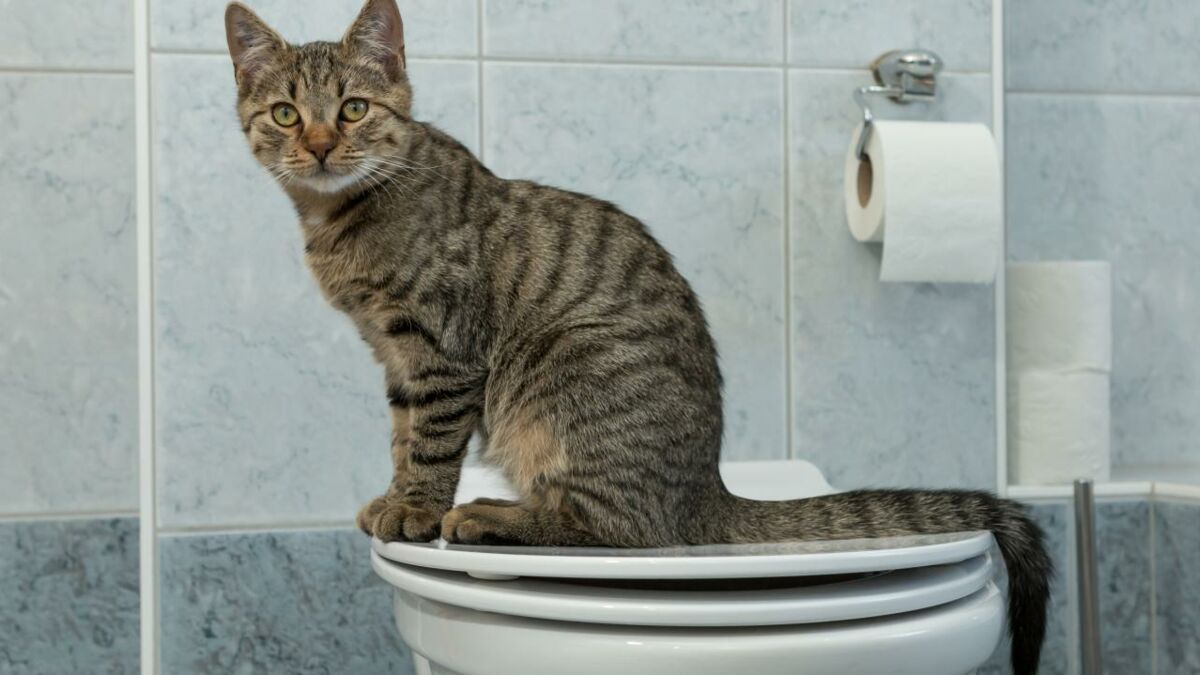The author is making a few great points on the subject of Don’t flush cat feces down the toilet in general in this content beneath.

Introduction
As cat proprietors, it's necessary to bear in mind just how we take care of our feline friends' waste. While it may seem hassle-free to flush cat poop down the toilet, this technique can have detrimental consequences for both the atmosphere and human health and wellness.
Environmental Impact
Flushing pet cat poop presents harmful virus and bloodsuckers right into the water, posing a considerable threat to marine environments. These impurities can negatively impact marine life and concession water top quality.
Wellness Risks
In addition to ecological problems, purging feline waste can also present health and wellness risks to human beings. Pet cat feces might contain Toxoplasma gondii, a bloodsucker that can trigger toxoplasmosis-- a potentially severe health problem, specifically for expecting females and people with weakened immune systems.
Alternatives to Flushing
Fortunately, there are safer and a lot more responsible means to deal with feline poop. Think about the complying with choices:
1. Scoop and Dispose in Trash
The most common approach of taking care of pet cat poop is to scoop it right into a naturally degradable bag and toss it in the garbage. Make certain to use a devoted clutter scoop and dispose of the waste without delay.
2. Use Biodegradable Litter
Opt for eco-friendly cat litter made from materials such as corn or wheat. These clutters are environmentally friendly and can be safely disposed of in the garbage.
3. Bury in the Yard
If you have a yard, take into consideration burying pet cat waste in a designated area away from vegetable gardens and water resources. Be sure to dig deep adequate to stop contamination of groundwater.
4. Mount a Pet Waste Disposal System
Purchase a pet dog waste disposal system especially made for feline waste. These systems make use of enzymes to break down the waste, decreasing smell and environmental influence.
Conclusion
Liable pet ownership extends past supplying food and shelter-- it additionally includes correct waste administration. By refraining from purging cat poop down the toilet and selecting different disposal approaches, we can lessen our ecological impact and safeguard human health and wellness.
Why You Should Never Flush Cat Poop Down the Toilet
A rose by any other name might smell as sweet, but not all poop is created equal. Toilets, and our sewage systems, are designed for human excrement, not animal waste. It might seem like it couldn’t hurt to toss cat feces into the loo, but it’s not a good idea to flush cat poop in the toilet.
First and foremost, assuming your cat uses a litter box, any waste is going to have litter on it. And even the smallest amount of litter can wreak havoc on plumbing.
Over time, small amounts build up, filling up your septic system. Most litter sold today is clumping; it is made from a type of clay that hardens when it gets wet. Ever tried to scrape old clumps from the bottom of a litter box? You know just how cement-hard it can get!
Now imagine just a small clump of that stuck in your pipes. A simple de-clogger like Drano isn’t going to cut it. And that means it’s going to cost you big time to fix it.
Parasitic Contamination
Believe it or not, your healthy kitty may be harboring a nasty parasite. Only cats excrete Toxoplasma in their feces. Yet it rarely causes serious health issues in the cats that are infected. Most people will be fine too if infected. Only pregnant women and people with compromised immune systems are at risk. (If you’ve ever heard how women who are expecting are excused from litter cleaning duty, Toxoplasma is why.)
But other animals may have a problem if infected with the parasite. And human water treatment systems aren’t designed to handle it. As a result, the systems don’t remove the parasite before discharging wastewater into local waterways. Fish, shellfish, and other marine life — otters in particular — are susceptible to toxoplasma. If exposed, most will end up with brain damage and many will die.
Depending on the species of fish, they may end up on someone’s fish hook and, ultimately on someone’s dinner plate. If that someone has a chronic illness, they’re at risk.
Skip the Toilet Training
We know there are folks out there who like to toilet train their cats. And we give them props, it takes a lot of work. But thanks to the toxoplasma, it’s not a good idea.

I was shown that report on How to Dispose of Cat Poop and Litter Without Plastic Bags from an acquaintance on another site. Sharing is caring. One never knows, you will be helping someone out. I am grateful for your time. Kindly pay a visit to our blog back soon.
Go Services